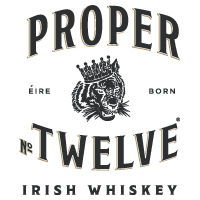Known for his rock-solid defence and elusive on-field nature, proud Wiradjuri man Ron Saddler is regarded as one of the best Indigenous players to ever don the Red, White and Blue.
Growing up in Euabalong, Far West New South Wales, Saddler’s rugby league journey kicked-off at the Murwillumbah Brothers in 1961, where he plied his trade in the Tweed District competition. In his opening two years, the young centre played an integral role in helping the club to their first ever premiership, backing up his efforts in 1962 to successfully defend the title.
Making his first-grade debut with Eastern Suburbs under Dick Dunn in 1963, Saddler made an immediate impression, helping the team secure a Round 1 victory over the North Sydney Bears at Sydney Sports Ground, now known as Allianz Stadium.
A year later, Saddler led the NSW Colts to a 39-15 win over France at the same venue, scoring one try and slotting six conversions while writing himself into history books as the first ever Indigenous person to captain a New South Wales team.

Saddler was a glimmering light for the Club in 1966, proving his exceptional defensive abilities by stepping up in difficult times to make brave tackles.
Buoyed by the Club’s success in 1967, Saddler got the nod to be the Blues’ captain because, as Kevin Junee said, “he was respected by teammates and opponents alike”.
Reflecting on his father’s 118-game tenure in the Tricolours, Brent Saddler says he couldn’t be any prouder of his dad.
“He was my idol growing up, I always wanted to be like him,” he said.
“I remember going to school and telling people that my dad was Ron Saddler, that memory is something that will always stand out for me.”
At the end of the 1967 season, Saddler and Junee were given a hearty send-off by teammates and fans at the Eastern Suburbs Leagues Club, after being selected to tour with the Australian Kangaroos squad.
Reflecting on his father’s career, Brent explains that his favourite memory is knowing dad got to represent the country.
“I have this photo of my Dad returning home from the tour with my mum and sister, who was a baby at the time,” he said.
“I know that experience was something he really valued, and I’d love to replicate that one day, being able to put on the green and gold is really special.”
Saddler was someone that never boasted about his football career, known to many as nature’s gentleman who was reliable, hard-working and committed.
Brent remembers visiting Roosters HQ as a child, where he and his father were embraced with open arms.
“I was so little when he played, I barely remember it, but we have such great memories and images in mum’s scrapbooks. You can definitely tell how much Dad loved the Club and the Club loved him,” he said.
“I feel such a great sense of pride to be his son, knowing he played a significant role in paving the way for Indigenous people in Australian sport.”
Saddler returned to the Tweed District competition in 1973 after almost ten years in the Red, White and Blue. The veteran centre captain-coached his former side, the Murwillumbah Brothers before retiring from the game.
On the 12th of May, 2016, Saddler passed away following a long battle with dementia, but his memory lives on, as a true Indigenous All Star.











